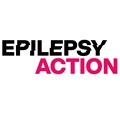Story
Epilepsy Awareness!!! PLEASE SUPPORT
My daughter was diagnosed with Petit Mal at the age of 10! it was always controlled by medication!!
On 23rd December 2017 she had 3 grand mal seizures she was admitted into Peterborough hospital and was discharged on christmas Eve. She gave birth to a beautiful little girl Alaya on 21st November.
Her life changed after the seizures she had to move back from Peterborough to live with me giving up her house, she lost her driving licence, we both we/are living in fear if it happens again, we have Alaya to think about all safety measures we put in place with the support of the Epilepsy team giving us advice... the simple things which we all take for granted like, taking a shower instead of a relaxing bath, not bathing Alaya on her own, carrying your child upstairs unless she was in a car seat, getting lots of support from me helping with the night feeds to reduce the risk of another seizure which can be brought on with lack of sleep, stress and many more factors..
We did a number of journeys after to Peterborough hospital before she got transferred back to the consultant in Gloucester. Having things taken away from you which isn't by choice is hard to deal with.
Gemma and Alaya are both dealing with everyday life, I try to imagine what it would be like for me to go and live back with my parents with my daughter giving up my home, have my driving licence taken away, losing some of your own indepence. She has always managed her Epilepsy well.
Anyone can develop epilepsy, at any time of life. Having seizures, or being told “you have epilepsy”, can affect people in different ways. There are 40 different types of Epilepsy!
Some facts about seizures
- Most seizures happen suddenly without warning, last a short time (a few seconds or minutes) and stop by themselves.
- Seizures can be different for each person.
- Just knowing that someone has epilepsy does not tell you what their epilepsy is like, or what seizures they have.
- Calling seizures ‘major’ or ‘minor’ does not tell you what happens to the person during the seizure. The names of seizures used on this page describe what happens during the seizure.
- Some people have more than one type of seizure, or their seizures may not fit clearly into the types described on this page. But even if someone's seizures are unique, they usually follow the same pattern each time they happen.
- Not all seizures involve convulsions (jerking or shaking movements). Some people seem vacant, wander around or are confused during a seizure.
- Some people have seizures when they are awake, called 'awake seizures'. Some people have seizures while they are asleep, called 'asleep seizures' (or ‘nocturnal seizures’). The names 'awake' and 'asleep' do not explain the type of seizures, only when they happen.
- Injuries can happen during seizures, but many people don't hurt themselves and don't need to go to hospital or see a doctor.
